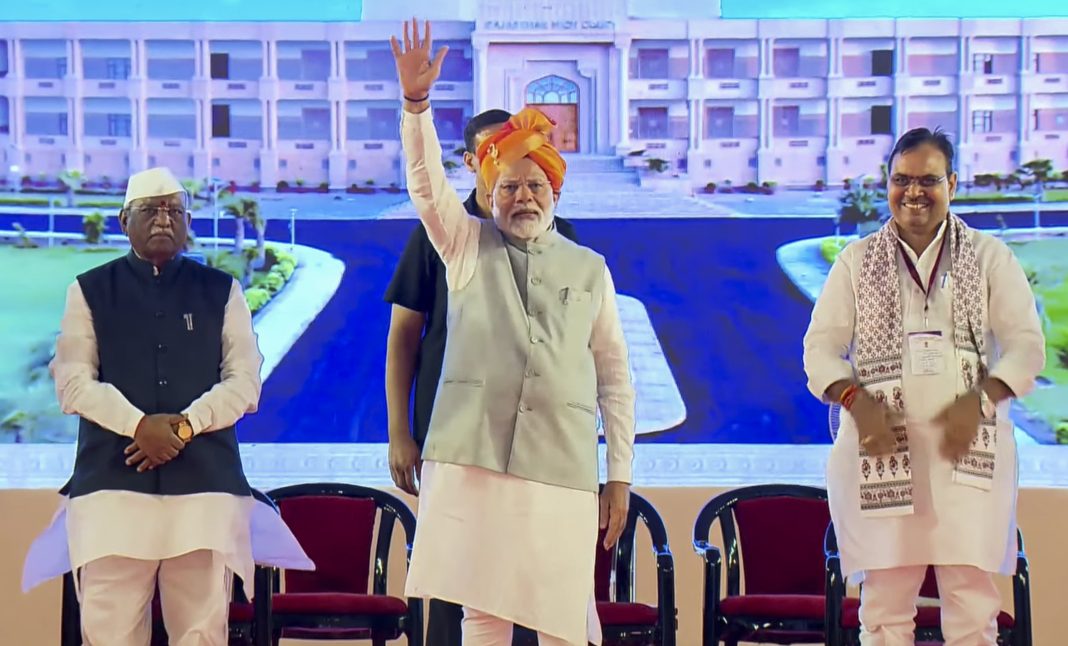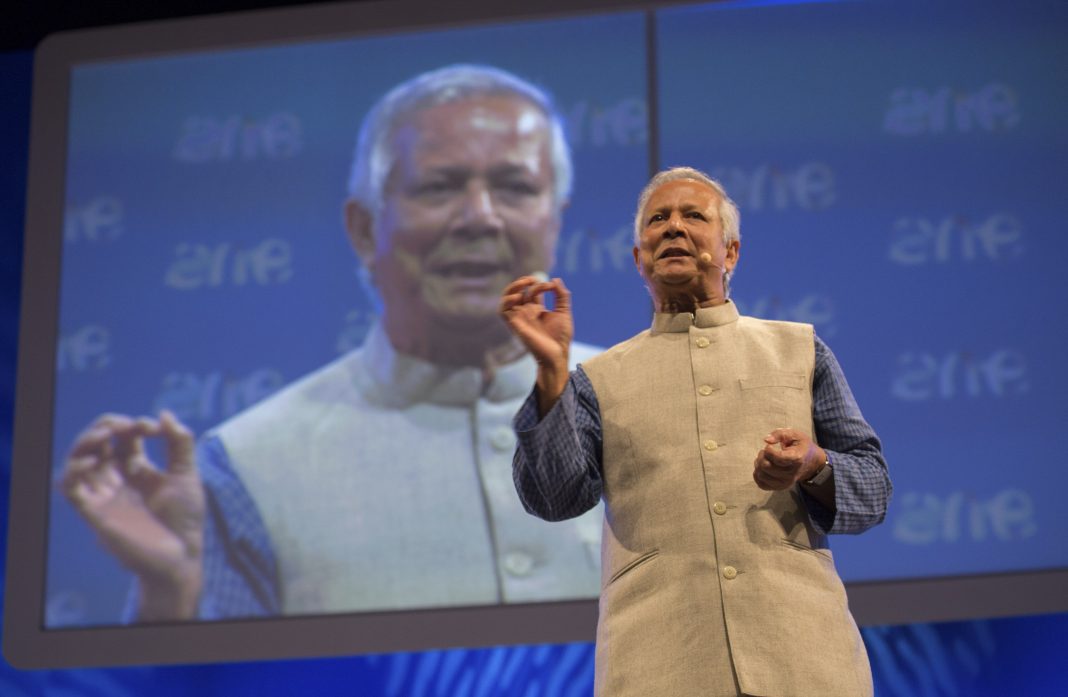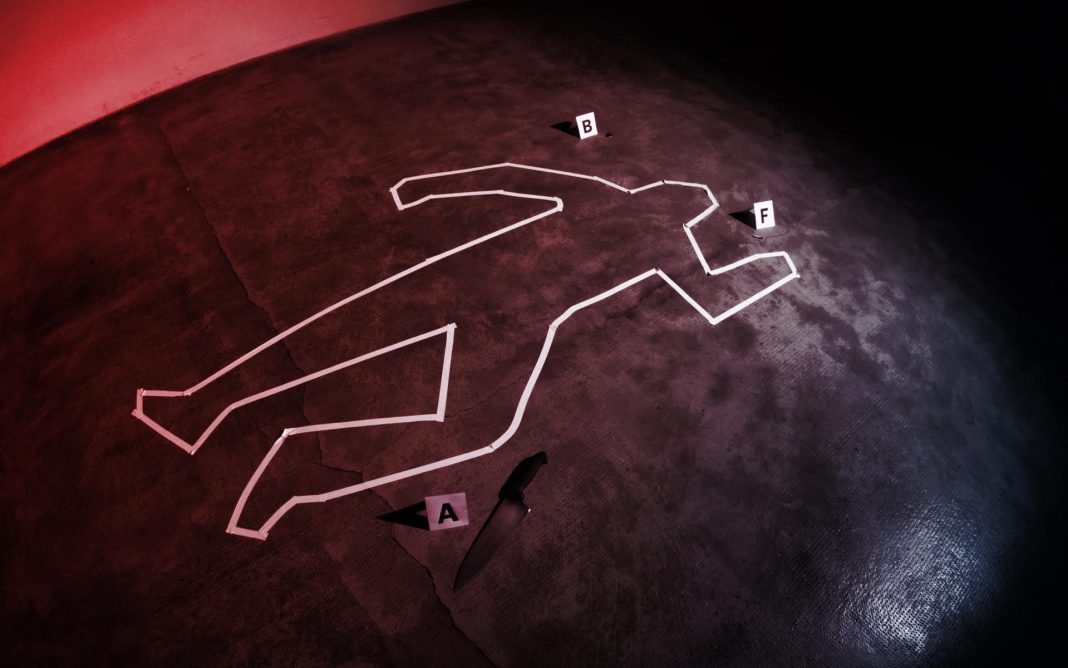Prime Minister Narendra Modi on Sunday said the guarantee of simple and accessible justice to all is important as the country moves towards the dream of a developed India.
Speaking at the concluding ceremony of Platinum Jubilee celebrations of the Rajasthan High Court here, Modi also referred to his Independence Day remark on ‘secular civil code’ and said that the judiciary has been advocating it for decades.
“As we move forward with the dream of a developed India, there should be a guarantee of simple, easy and accessible justice for everyone. This is very important,” he said.
Modi said that justice is always simple and clear, but sometimes the process makes it difficult.
“It is our collective responsibility to make justice as simple and clear as possible. I am satisfied that the country has taken many historic and decisive steps in this direction,” he said.
The prime minister also said that today the people’s dreams, their aspirations are bigger, “so it is important that our systems are modernized”.
“Innovation and modernisation of the system are equally important for providing justice for all,” he added.
Modi said that the Indian judiciary has continuously played the responsibility of being vigilant and active on national issues.
“The example of the ‘constitutional integration’ of the country by abrogating Article 370 from Kashmir is before us. The example of humanitarian law like CAA (Citizenship Amendment Act) is before us. What natural justice says in the national interest on such issues has been completely clear from the decisions of the courts,” he said.
The prime minister said that from the high courts to the Supreme Court, the judiciary has strengthened the resolution of ‘Nation First’ on such issues many times.
“On this 15th August, I talked about a secular civil code from the Red Fort. Although this is the first time that a government has become so vocal on this issue, our judiciary has been advocating it for decades. This clear stance of the judiciary on the issue of national unity will further increase the trust of the citizens in the judiciary,” he said.
Modi said that the government has repealed hundreds of colonial laws that became completely irrelevant.
“After so many decades of Independence, overcoming the mentality of slavery, the country has adopted the Bharatiya Nyaya Sanhita in place of the Indian Penal Code…justice instead of punishment. This is also the basis of Indian contemplation,” he said, adding that the new laws liberate Indian democracy from the colonial mindset.
Talking about the use of information technology, he said that the e-courts project is the biggest example of how big a change can be brought about by the IT revolution.
“Today more than 18,000 courts in the country have been computerized. I have been told that information of more than 26 crore cases has been linked to a centralized online platform through National Judicial Data Grid. More than 3,000 court complexes and more than 1,200 jails of the country have been linked through video conference,” he said.
Modi said alternative dispute resolution mechanism is becoming an important way for less expensive and quick decisions in the country.
“This system will promote ease of living as well as ease of justice in the country,” he said.
Terming ‘integration’ the most significant word in terms of taking the country ahead in the 21st century, Modi said that it is the vision of the government that police, forensic, process service mechanism, and from district courts to the Supreme Court, all work in integration.
“The use of technology is becoming a tried and tested formula for empowerment of the poor in today’s India,” he said.
He also said that India’s work in many areas, from Direct Benefit Transfer (DBT) to UPI, has emerged as a global model.
“This experience has to be implemented in the justice system. In this direction, technology and access to legal documents in one’s own language will become the most effective means of empowering the poor,” he said.
The prime minister said work needs to be done to ensure that legal documents and justice are made available to the people of the country.
“A software has been developed under the guidance of the Supreme Court through which judicial documents can be translated into 18 languages,” he said.
He said that earlier the term ‘court ka chakkar’ was common.
“Today, after decades, the country has taken effective steps to end the pain of the common citizen and to end the ‘chakkar’. This has raised new hopes regarding justice. This has to be maintained. We have to keep reforming the justice system,” he said.
On the occasion, Union Law Minister Arjun Ram Meghwal said the prime minister has given a city-centric modern legal system by promoting the ease of Justice.
He said that 1,562 laws which were not needed have been repealed.
Rajasthan Chief Minister Bhajanlal Sharma said that the judiciary, executive and legislature are doing better work in Rajasthan.
He said Prime Minister Modi has done things like repealing decades-old laws, making the process easier with new laws and simplifying the rules.
Governor Haribhau Bagade, Chairperson of National Legal Services Authority (NALSA) Justice Sanjiv Khanna and Rajasthan High Court Chief Justice M M Srivastava were also present on the occasion. (PTI)




